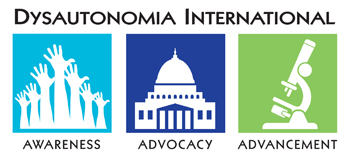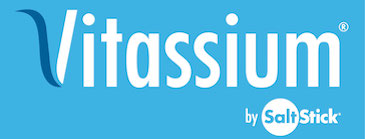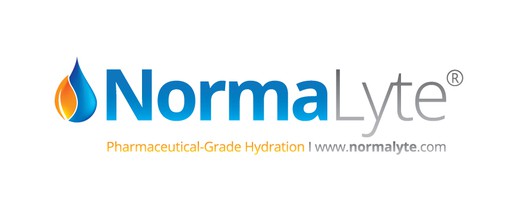2022 Call for Proposals: Transcranial Doppler Equipment Grants
Dysautonomia International is pleased to offer up to $800,000 in research funding during our 2022 grant cycle. The following describes the requirements of our Transcranial Doppler Equipment Grant program. For the other grants available, please review the main 2022 Call for Proposals.
BACKGROUND
Historically, many people who experienced frequent symptoms of orthostatic intolerance who did not have tachycardia, hypotension or syncope during tilt have been told "nothing is wrong" because their tilt table test results were "normal." However, recent research using transcranial doppler (TCD) devices to measure cerebral (brain) blood flow during tilt testing reveals that many of these individuals have significant reductions in cerebral blood flow when upright contributing to their orthostatic intolerance symptoms, despite their heart rate and blood pressure remainng within normal limits during tilt testing. Research also suggests this reduction of cerebral blood flow may be caused by a variety of different physiological mechanisms that could potentially respond to different treatment approaches.
Dysautonomia International seeks to encourage the implementation of cerebral blood flow assessments as part of routine clinical care and research in autonomic labs. Using TCD to measure cerebral blood flow during tilt testing will provide objective evidence of physiological abnormalities in a large number of individuals with persistent symptoms of orthostatic intolerance, including those who do not meet criteria for POTS, orthostatic hypotension, or syncope. Objective evidence of physiological abnormalities validates the lived experience of patients and helps them obtain better medical care from clinicians, coverage of treatments that may otherwise be denied by insurers, and more support from family/friends/co-workers who may otherwise dismiss their symptoms as "not real" because their heart rate and blood pressure remain within normal limits during tilt testing.
Additionally, use of TCD in combination with other assessments may shed light on the mechanisms that contribute to the reduction in cerebral blood flow upon upright posture in a wide variety of autonomic disorders, including POTS, orthostatic hypotension, syncope and other autonomic disorders. TCD may also be useful to document the efficacy of certain treatments used in autonomic disorders.
FUNDING AVAILABLE
Dysautonomia International has allocated $100,000 to provide matching grants up to $15,000 each to autonomic labs to assist with the purchase TCD devices, training of staff on how to properly use TCD during tilt, and training on how to interpret TCD results. TCD device costs range from $25,000 - $35,000 each, so applicants must be able to demonstrate their ability to obtain additional funds to pay for the TCD device they plan to purchase.
WHO CAN APPLY?
Autonomic labs directors in any country with substantial clinical experience and a history of publishing high-quality autonomic research may apply. The autonomic lab must have, at a minimum, tilt table testing, Valsalva testing, heart rate response to deep breathing testing, and a method to assess small fiber neuropathy (quantitative sudomotor autonomic reflex testing or small fiber skin biopsy testing).
OTHER REQUIREMENTS
The applicants must have a plan to use the TCD device clinically and for research purposes. Dysautonomia International does not want to fund equipment purchases that will sit on a shelf unused.
The applicants must also have a plan to train relevant faculty and staff on how to use TCD devices during tilt and how to interpret TCD data. Most TCD companies offer training and Dr. Peter Novak at the Harvard/Brigham & Women?s autonomic lab has offered to provide training to fellow autonomic lab directors and staff, as he has been using TCD devices as part of autonomic research and clinical care for several years.
While applicants may purchase whatever TCD device they prefer, Dysautonomia International has negotiated a discount purchase price with the manufacturers of two of the most popular transcranial doppler devices recommended by Dr. Novak. We encourage TCD grant applicants to contact us to discuss details before applying (research@dysautonomiainternational.org).
No portion of the equipment grant from Dysautonomia International may be used to pay for indirects/overhead.
THE APPLICATION PROCESS
We will use a simplified letter application process for the TCD matching funds. Applicants should submit a letter on institutional letterhead of no more than five pages, via email to research@dysautonomiainternational.org, that describes the following:
-name of the autonomic lab director applying
-confirm that the autonomic lab has the autonomic reflex testing equipment described above
-plan to use the TCD device clinically
-plan to use the TCD device for autonomic research
-plan to train relevant faculty and staff
-brand/model of TCD device you intend to purchase
-amount of TCD matching funds sought from Dysautonomia International ($15K max)
-source of other funds to support the device purchase
This letter can be submitted by itself, or in combination with one or more applications to our POTS Research Fund, Dysautonomia Research Fund or Long COVID Research Fund.
REVIEW PROCESS
Applications will be reviewed by our Board of Directors in consultation with our Patient & Caregiver Advisory Board, Medical Advisory Board members who are not applicants, and independent experts with TCD research and clinical expertise. All reviewers have agreed to keep information learned during the review process strictly confidential using signed Confidentiality Agreements.
IMPORTANT DEADLINES
TCD Application Letter Due: on or before November 1, 2022
TCD Matching Grant Recipients to be Notified: on or about December 15, 2022
CONTACT INFORMATION
Please feel free to ask questions about the overall grants process before applying. Contact research@dysautonomiainternational.org.
DONATIONS WELCOME
Dysautonomia International is able to fund TCD equipment grants through the generosity of many donors, large and small. If you would like to support this initiative, we invite you to contribute at CureDys.org.
| | |



